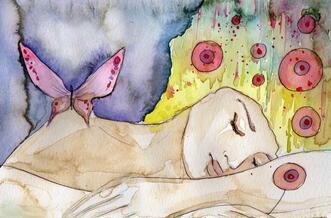 By Marilyn Erickson, MSN, APRN (This is Part II of a three-part series on Sleep. If you missed Part I, you can read it here) Recall from Part I of this series that to help us be ready for a new day, make better decisions, be more emotionally adaptive, and cope with all the changes and challenges of getting through the day, our minds and bodies must have adequate rest. Good sleep is going to repair and form new pathways in our brain. Of course, just knowing more about the importance of sleep has very little to do with getting enough sleep. In this Part II of the sleep series we will look at what we can do to help us have a good night’s sleep without medication, herbs or supplements. Somehow, we have to turn our expectations for greater productivity into a healthy respect for human repose. Adequate sleep can move us on a track of greater success in life. For example, Arianna Huffington writes, “Sleep isn’t the enemy of success and ambition. It is the royal road to the corner office”. After years of not sleeping well, Huffington changed her routine to retiring at a sensible hour each night, taking a hot bath with Epsom salts, drinking a cup of lavender or chamomile tea and just before getting into bed she writes a list of things she is grateful for. But most often, it is not that simple. There are so many factors that contribute to our sleep difficulties. Matthew Walker attributes insomnia to the overactive sympathetic nervous system that is triggered by worry and anxiety. So writing a list of blessings will not do much to lower those higher cortisol levels. What are some things we do have control over that influence sleep? 1. Limit caffeine: Caffeine is thought to block the body’s cell receptors that adenosine uses to trigger its sleep-inducing signals. So it fools the body into thinking it isn’t tired. (Adenosine is a substance that builds up during the waking hours and reaches a level toward the end of the day that signals us to get rest. Then, while we sleep, the adenosine is broken down.) Caffeine can take as long as 6-8 hours for its effects to completely wear off. 2. Limit nicotine: As nicotine is a stimulant, it makes our sleep lighter than normal sleep and heavy smokers tend to awaken earlier due to nicotine withdrawal. 3. Limit or avoid alcohol: Alcohol can help us get to sleep more easily, but it prevents deep sleep and REM sleep, giving us only the lighter stages of sleep. Persons who drink alcohol may also awaken during the night when the effects of the alcohol wear off. 4. Avoid large meals (especially avoid spicy and sugary foods) and vigorous exercise 4-6 hours before bedtime: These practices can make it harder to fall asleep. However, exercise during the waking hours is associated with improved sleep. GIVE YOURSELF TIME TO WIND DOWN BEFORE BEDTIME. Relaxing in a hot bath and/or having a cup of hot non-caffeinated beverage at night can be helpful. 5. Improve your sleep environment; create a quiet and relaxing environment:
6. Other tips:
References: American Academy of Sleep Medicine, Healthy Sleep Habits, 2020. Arianna Huffington, The Sleep Revolution, Transforming Your Life, One Night at a Time. Matthew Walker, Why We Sleep, Unlocking the Power of Sleep and Dreams, 2018 University of Washington, Creating Healthy Sleep Habits for Your Family, 2022. US Department of Health and Human Services (National Heart, Lung, and Blood Institute), Your Guide to Healthy Sleep, 2011. The third part of this series on sleep will focus on supplements and herbs that can be beneficial in getting adequate rest and quality sleep.
0 Comments
|
Archives
July 2024
|

